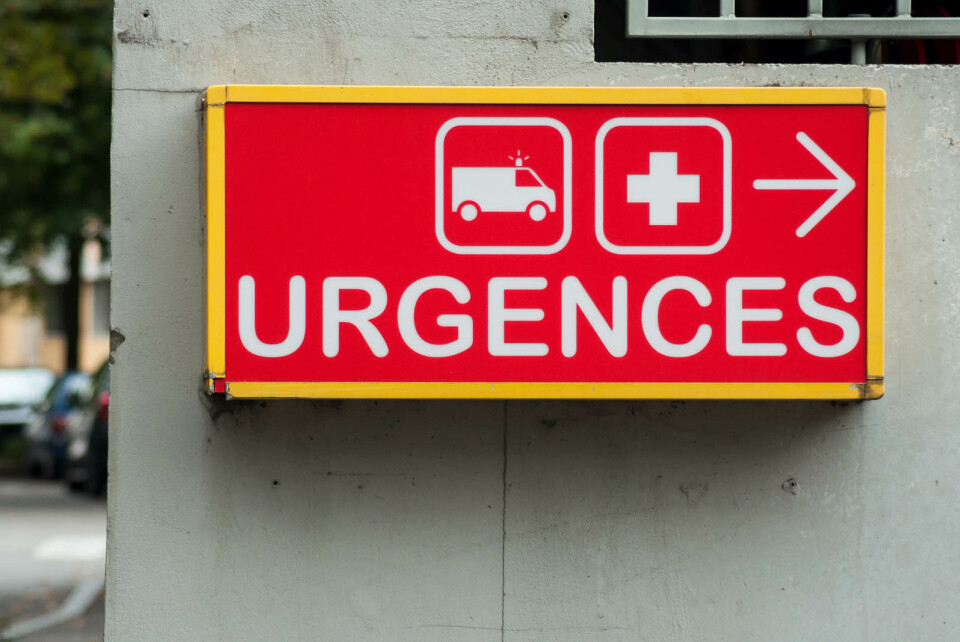-
How long are waits at French emergency units - new statistics released
We also look at how wait times compare with the UK and the US
-
MAP: 35 French hospitals activate a ‘white plan’ due to flu cases - what it means
Non-urgent care may be cancelled among other measures as medical teams deal with the influx of virus patients
-
Flu epidemic continues in France, under-15s and over-65s most affected
The entire country is still on ‘red alert’ for flu, but bronchiolitis is dropping
French hospitals to charge €18 fixed fee for A&E visits
The aim is, in part, to reduce cases such as people visiting A&E for sick notes for work instead of going to a GP

Hospitals are to charge a fixed nonstate-reimbursable €18 fee to patients who visit A&E (urgences) but who are not then admitted to hospital.
There has been opposition to the end of so-called ‘free’ A&E visits but, as consumer body UFC-Que Choisir points out, visits were never actually free, with a few exceptions such as pregnant women and those with ALD (affection de longue durée) long-term health conditions.
It is just that a combination of the carte Vitale system and a mutuelle top-up insurance meant many people did not have to pay upfront.
The charge up to now was €25.28 for A&E treatment without hospitalisation, plus extra itemised fees for specific services received.
All of this has been reimbursed at 80% of state tariffs, with the rest (called le ticket modérateur) usually picked up by mutuelles.
With some hospitals moving towards American-style payments, with every plaster and swab itemised and charged for, bills could mount up, especially for those with no mutuelle. Where there was a remaining part, the hospital would usually send a bill in the post.
The new fee replaces both those previously charged and the ticket modérateur, and most mutuelles (especially those designated as responsables) have modified their cover to include it.
The government said the system would reduce inequalities in the provision of emergency services. “It will ensure an end to the large sums some patients have been left to pay out of their pockets,” the law’s preface said.
People with an ALD long-term health condition (for care related to this) and pregnant women will pay a reduced rate of €8, with total exemption for pregnant women from the sixth month of pregnancy and those with babies aged under one month. Other limited situations include abused children and victims of terrorism.
If an A&E is set up for the tiers payant system, visitors will not pay upfront if they have a suitable mutuelle. If not, they will have to pay the €18 and claim it back where possible.
Those with no top-up cover will obtain no refund but they were already out of pocket by a similar amount on average under the previous scheme.
Related stories
Pharmacists in France allowed to renew and adjust repeat prescriptions
























